Case study: Using LEGO SERIOUS PLAY in a multi-cultural, multi-lateral stakeholder engagement context
GIZ/PAKLIM and DANIDA/EINCOPS are development cooperation programmes respectively funded by the German and Danish governments, supporting the Indonesian government in its efforts to address issues related to climate change, particularly through improving energy efficiency, thereby reducing greenhouse gas emissions.
Many institutions in Indonesia are also involved in mitigating climate change effects. Apart from Denmark and Germany, a number of international donors including AUSAID, USAID, AFD (France), IFC/World Bank, JICA (Japan), and the Dutch development agency. In addition, a few professional development and certification organisations are promoting competing Energy Management standards. Academic and research establishments are also conducting programmes to further knowledge about the causes, impacts, and mitigation approaches for greenhouse gas emissions. All these parties, depending on the exact nature of their activities deal with a variety of government ministries: Strategic Planning, Finance, Environment, Industry, Energy, and Education, to name a few. All of these institutions are typically seeking recognition for their own work and are reluctant to recognise the value of the contribution of others.
Previous attempts to document all of these activities have resulted in partially-completed tables in Microsoft Word or Excel, quickly obsolete.
When Dr. Joyce Miller, certified LSP facilitator, took over the leadership of the GIZ/PAKLIM’s Industry Component, she knew that an LSP-powered workshop would help to develop a clearer vision of what each actor was doing, and with luck, it would create a dynamic for community building and collaboration, rather than reinforcing the prevailing one of competition. Moreover, she suggested that the workshop itself be seen as a demonstration of a collaboration between GIZ and DANIDA. As Joyce wished to contribute fully to the proceedings and get to experience LSP as a participant for a change, I was asked to design and facilitate the workshop.
The Event
The GIZ/PAKLIM-DANIDA/EINCOPS Stakeholder Workshop on Energy Efficiency was held at the Méridien Jakarta Hotel on 21 November 2011. A last-minute change in rooms (requested by the hotel to accommodate another client) meant that some of the participants were a little confused, but this venue, which was on the same floor as already communicated, gave us some extra space, which definitely made the facilitation of the workshop easier.
No one, apart from Joyce and one colleague on the PAKLIM side, knew anything of the methodology or the process.
The workshop ran according to the following programme:
|
Welcome
Break
Lunch
Break
|
Developing a Collaborative Environment To help build up communication and trust in working together, the initial phase of the programme introduced participants to the various building blocks of the methodology (construction, metaphor, story-telling, imagination) through a combination of hands-on exercises, which set participants at ease and created a lot of energy and willingness to participate in the substantive discussions that followed.Picturing the future of Indonesian Energy Efficiency From this basis, participants were asked to develop a common vision of the Ideal World of Energy Efficiency Development in 2025. The subject was sufficiently vague and placed in the future to free participants from a need to adopt a particular position or point of view representing any particular organisation. The vision for the Ideal World was then enriched with factors and conditions that could be perceived as opportunities or threats to this Ideal World. Ongoing activities Stakeholder mapping Gaps and Synergies Brainstorming and Commitment to Next Steps Reporting out Wrap-up and close |
Conclusion
The workshop ran smoothly all day. There were occasions when I was reluctant to halt discussions, such as the conversations about the characteristics of an Energy Manager and an Energy Auditor. Yet it was necessary to move the assembled company through to a situation by the end of the day where they had a clear sense of collaboration amongst themselves and had identified concrete actions with specific people committed to overseeing their execution.
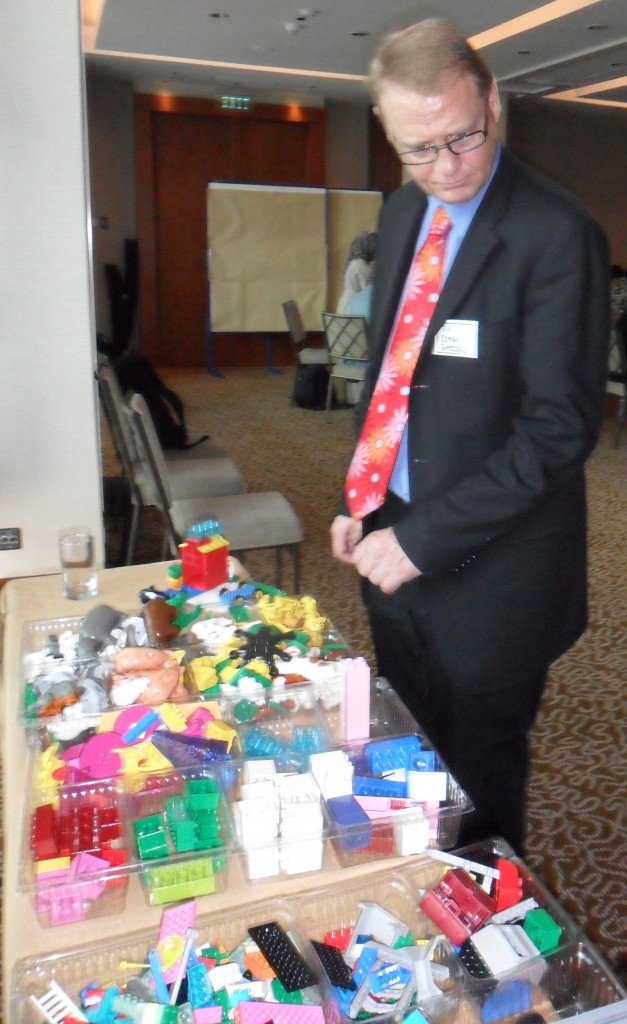
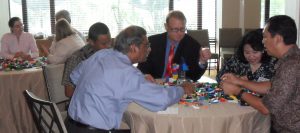
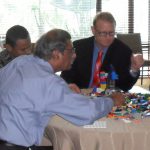
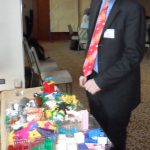
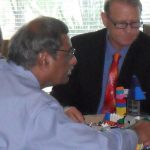
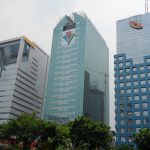
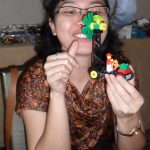
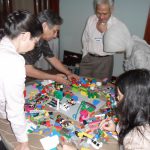

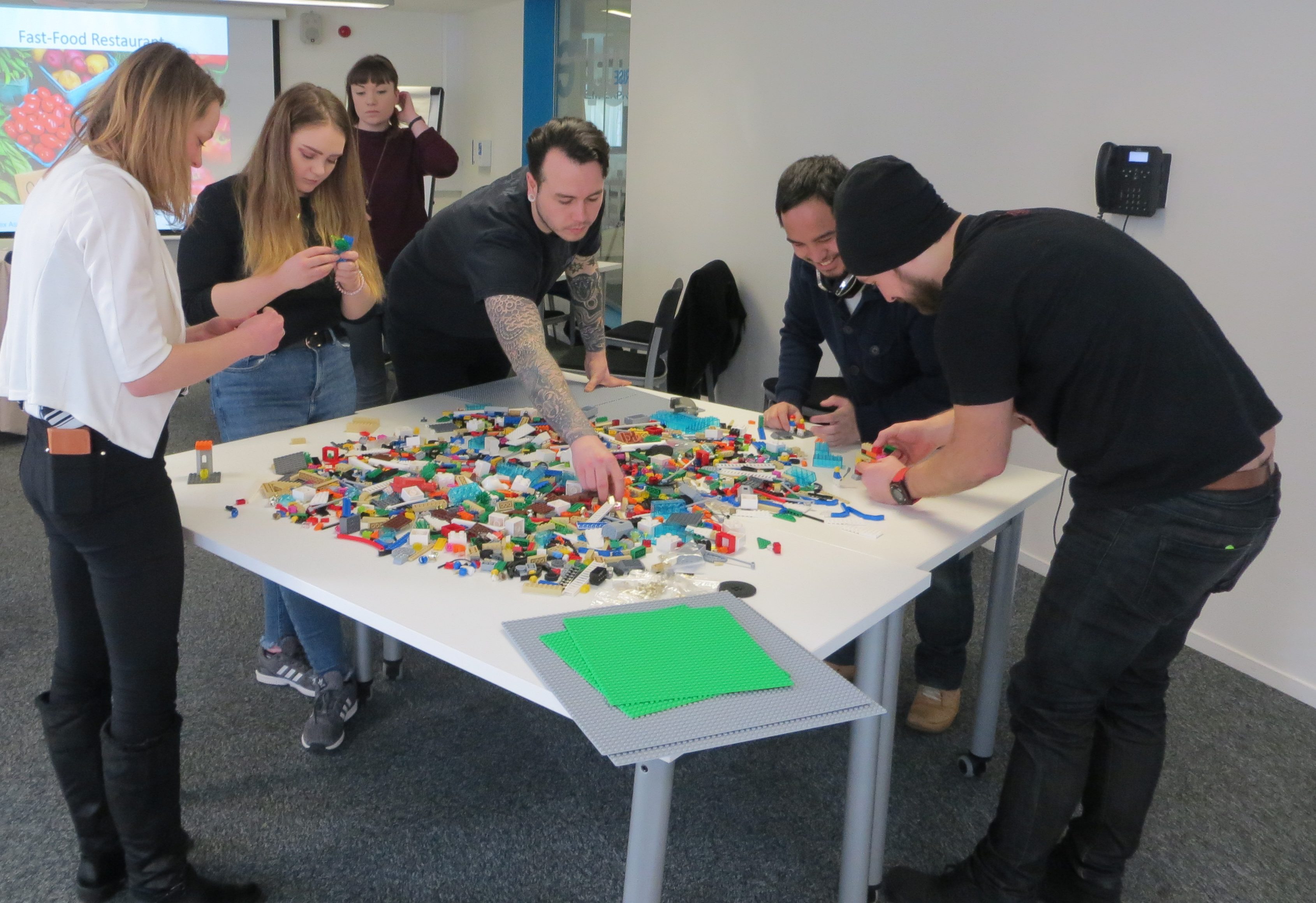


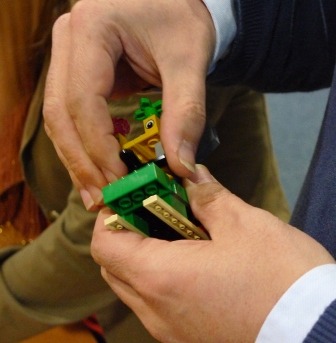
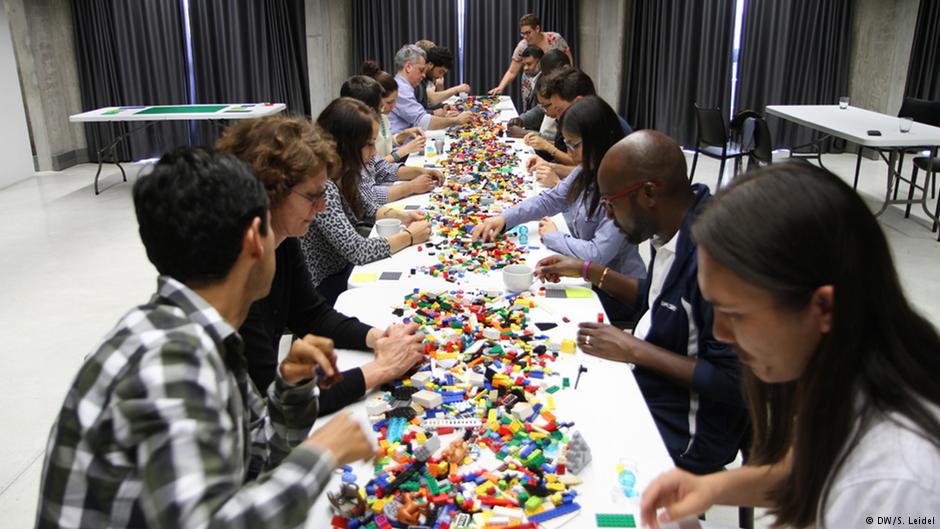


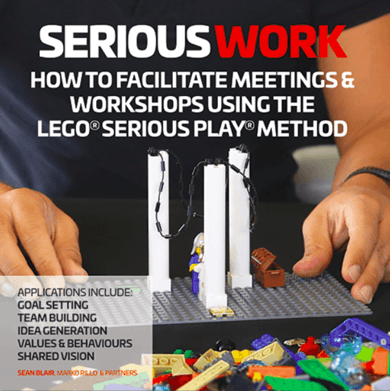
 Become a LEGO Serious Play facilitator - check one of the upcoming training events!
Become a LEGO Serious Play facilitator - check one of the upcoming training events!
Hello. I recently became a facilitator specifically because I’m interested in how LSP might be used to improve stakeholder engagement in international development initiatives, so the title of your recent post immediately caught my eye. Two questions:
1) You mentioned which organisations stakeholders were from, but what was their position within their respective organisations (i.e. were they all senior people)?
2) What was participants’ initial response to the LEGO bricks? I will be working in the Pacific and there has been some concern that adults will find an outsider asking them to ‘play with toys’ offensive.
Thanks!
Hi Lauren, Congratulations on joining the community. A lot of work that we do is in international development. LSP clients include UNDP, UN-CWGER, GIZ, DANIDA, PREMAnet. UNEP were interested, but decided they could not afford the price. With respect to your questions, I will endeavour to answer as completely as I can. Anything I write here could be useful to others.
1) I know for a fact that some of the participants were not senior. One participant from GIZ finished her Masters in Knowledge Management in Development Cooperation just over a year ago. A couple of others were in their late twenties. Most however were the heads of the part of their organisation concerned with the topic. In other words, absolutely the right level for the work to be done.
2) I would say that the only reluctance to the methodology came from some of the more junior staff, who were still too immature to understand the actual purpose of the meeting. I like to be provocative and use extremes to illustrate a point: Imagine a ten-year-old child walking in on UN negotiations regarding the approach towards Syria. The child would listen to all the rhetoric and not understand anything. To the child, what matters is why are Syrian kids killing other Syrian kids. It is a serious question; but the members of the security council are discussing geopolitics and the economic balance of global power, of which Syria is a tiny part. Likewise, these young members of the development cooperation world were expecting immediate tangible results from the workshop, which they could post on Facebook from their iPhone. Their perspective was not sufficiently broad to realise that for the first time, 35 senior stakeholders from almost as many organisations active in the area of energy efficiency policy in the 4th biggest polluting country in the world had come to a common vision.
One area of unilateral agreement was the abolishment of the fuel subsidy. On April 1st 2012, Indonesia will increase the price of fossil fuel by about 20%. It is just a first step. If I were able to believe that our one-day workshop could have at least partially contributed to this concrete step, I would feel so honoured.
As for the notion of playing with toys, does a university professor find using chalk offensive? Kids play with chalk, right?
Just commenting on the LSP in Indonesia as I am based in Indonesia. I have been in training and consulting for some decades now and ran into LSP in Australia. I became interested and started researching the tools, methodologies and case studies in the various forums by Dr Denise from MCI, Prof Rasmussen and the Professor from England? who used it for a multiple background sample identity study.
I recently had an opportunity to use LSP in a workshop I was running where a company was experiencing upheaval and uncertainty due to organisational changes. I followed the method of Basic Skill Building, and then moving on to basic sharing, building challenges. First individually , then in collaborative groups.
The class size was 25 which I divided into 5 groups of five. The general seniority level was junior manager to middle manager with around 10 years average work experience. Age varied from ’30s to late 40’s, early fifties. They were all Indonesians.
The workshop lasted around 6 hours and my general observations are:
The People enjoy playing with LEGO. It is absorbing and opens up the mind and creativity.
The participants still had issues as to why the activity was actually useful (What was the objective?). Even though this had been explained to them and samples of other workshops and stories had been shown to them.
Asian people are more reluctant as a culture to open up their feelings for scrutiny. Even though LSP emphasizes the sharing process, dominant personalities still have an impact, particularly in the collaborative building stages.
The creative stimulation was good, all participants had a chance to express and participate which is better than most workshops I have done. Envisioning current organisational situations and future desired states also appeared in varying degrees.
The main issue I still have is the that I still don’t think the participants have yet bought into fact that LSP is a serious and legitimate tool. They still appear to view it as a new type of training/workshop game which is more geared towards team building fun as opposed to having a real purpose.
Based on this I do need to get more ideas or input into how to make the LSP experience a more beneficial and productive one.
note: I have used various tools before in my workshops, from gamestorming, Djohari windows, games, murder mysteries, physical team games, outdoor adventures, shooting games, visualisation sessions, future modelling, etc. So i know what I am benchmarking against.
Dear Sebastian,
I saw your comment come in at the beginning of July, but was unable to give it the attention it deserved before now. Your comments regarding participants’ apprehension, hierarchical dominance, etc. caught my attention; my impression is that this is quite a general phenomenon, not confined to Indonesia or even Asia. In the workshop I described in the case study, I had a senior guy who really did know more than most and had the hierarchical position and age to support his dominance and he really loved talking. Nonetheless, he played by the rules and would only dominate when left to do so, typically when other tables were still building and his table had finished.
In an LSP workshop, the facilitator needs to maintain his or her authority. If you have been mandated by a sponsor, this is relatively easy. I always try to ensure that the most senior sponsor (normally the one who approves the budget) “drops in” for at least a quarter of an hour, preferably to explain the importance of the activity about to commence.
One challenge we have here in Jakarta is that the term “workshop” is used for almost anything where more than one person is allowed to speak and the term “facilitator” is used where I would prefer “Master of Ceremonies” or “host”.
I would love to have a chat with you about your participants having trouble with understanding the workshop’s objectives, which I can fully believe. Where are you based? If you are in Jakarta, do you fancy meeting up?
Cheers,
Eli
Hi ELi, Sorry for some strange reason the seriousplaypro website just notified me by email today that there is a pending message from you. 1 month later!
Yes , I am based in Jakarta. I also just managed to get all the starter kits and the Landscape identity kits. They are quite hard to get your hands on, but I’m well set for a good sized workshop now. Due to the connections kits availability I have started building my own connections components. Amazing what you can build from ACE Hardware electrical/plumbing components and some basic LEGO bricks!
I just got the full certification from Robert Rasmussen recently as I wanted to know what steps or procedures in facilitating I was doing. There was quite a bit of “ooh.. thats what I was missing!”. However to be honest, all the concepts once you get into RTS and Emergence can be quite overwhelming!
I have had quite a bit of interest in LSP (mostly which I have been generating). Currently I am designing and proposing several workshops. I can tell you that the biggest issue is actually schedule design. Content is not too difficult. I do a lot of new culture socialisation, cultural alignment, behaviour stuff.
Are you in Jakarta? Yes I would love to meet up. Just email me on sebastian@sjbradford.com
Cheers
Sebastian
Dear Eli,
Thanks for spending the time meeting up. It was a pleasure to meet you and Joyce. An LSP expert team in one place is quite awesome. Did not notice 2 hours stretching into 6! Also quite impressed with your LEGO collection, especially the pump connections!
Anyway got a lot of interesting input and “other angle” perspectives to LSP which made me think quite a bit. Your experience and Joyce’s is quite impressive.
Just tried a 1.5 hour demo LSP workshop today for a large multinational Bank. It is not as easy as you learn in the workshop, or maybe it is just me not being well versed in it yet. Did the Tower, build to instruction from the book, modify to metaphors. Then individual builds of the ideal department and a shared model afterwards.
I can see your point on trying to keep them in and out of the upper boundaries of the Flow. You really have to challenge them with a head scratcher or you can easily lose their interest and active participation. It didn’t help that another trainer had just given them a free trial on decision making using Poker principles!
Anyway going to do another demo for a bigger LSP project next week and I think I have to redesign the free 1 hour demo to make sure it really grips as the big Directors will be involved.
Anyway just keeping you posted and thanks again for your great , friendly help!
Cheers
Sebastian